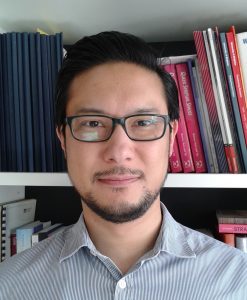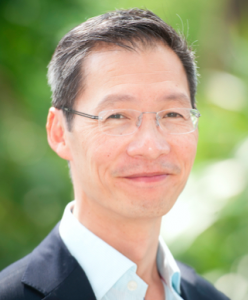A Brighton University lecturer has spoken about his experience of long covid after joining a pioneering study led by a local doctor.
Jason Lim, 46, said that he suffered extreme fatigue and could barely walk around the block, having previously been a very active walker.
He said that it had become “hard to perform the simplest of tasks” and his memory and concentration levels were poor.
Mr Lim said: “I got covid back in March 2020 but I was never tested and it was hardly anything for a couple of weeks or so. But then I started going downhill fast.
“The fatigue was really bad. The post-exertional malaise can be really bad. This is any activity, physical or mental, if you go above a certain level, and you don’t know what that level is going to be on any given day. It makes you feel really fatigued.
“And it manifests itself in all sorts of ways – nausea, fatigue, gastro-intestinal problems – a whole breakdown really. It could last for days. I was struggling to get out of bed.”
Mr Lim, who lives in Brighton, will also work as a co-investigator on the study, leading the patient-public element.
The study as a whole is being led by Dennis Chan, a consultant neurologist at University Hospitals Sussex NHS Foundation Trust, which runs the Royal Sussex County Hospital, in Brighton.
Mr Lim, a senior lecturer in human geography, said: “I was a very active walker. I love to walk. I would walk to work every day – half an hour away. Now I can barely walk around the block. It’s hard to perform the simplest of tasks.
“Once I heard about this, I said to Dr Chan that I wanted to be involved and wanted to take part.
“I want my old life back – to walk miles, watch a film and remember it, return to work properly. I’m only 46. I’ve got so much yet to do.”
Dr Chan and his team will work with long covid patients at his Cognitive Disorders Clinic at the Princess Royal Hospital in Haywards Heath. Other sufferers will be recruited to take part in the trial.
He is also principal research fellow at the Institute of Cognitive Neuroscience, University College London, and leading the £1.2 million study known as CICERO.
The study is one of 15 taking place across the country, backed by almost £20 million of government funding through the National Institute for Health Research.
The aim of the study is to look into the long-term cognitive effects of long covid, how to treat it and whether personalised cognitive rehabilitation may help people return to normal function. Researchers across Britain are also trying to develop new diagnostic tests.

The studies were commissioned after research found that a significant proportion of people continue to experience chronic symptoms many months after their initial coronavirus infection.
Dr Chan said: “Nearly 90 per cent of people who experience long covid have problems with memory, attention or other cognitive functions – symptoms known colloquially as ‘brain fog’.
“We have to understand why people are affected in the ways they are. We need to identify better the nature of the cognitive problems then find therapies which will help people return to normal daily activities.
“People are familiar with the term ‘brain fog’ when it comes to long covid. But let’s be specific. Brain fog is referring to cognitive impairment and this is increasingly recognised as a major component of long covid.
“Its occurrence impacts quality of life and has major consequences for affected people, their families and the wider economy given people’s difficulty in returning to work.”
The CICERO study will first try to determine which elements of brain function are most affected in people with long covid.
The relationship between brain function and other symptoms of long covid, such as fatigue and anxiety, will be explored, and MRI scanning will be used to identify the affected underlying brain networks.

The researchers will then try to develop and test a new rehabilitation strategy to help people recover from the cognitive aspects of long covid and return to normal life and working ability.
At the end of the study, a free covid-19 cognitive recovery guide will be produced which will help clinicians deliver a rehabilitation programme that is tailored to meet each individual’s specific needs.
Two hundred people are expected to take part in the study which has already begun, with results expected in two years’ time.
Dr Chan said: “The aim of this study is twofold. First, to understand better the nature of this ‘cognitive covid’ in terms of the cognitive functions affected and the associated brain imaging changes.
“And second, to test whether neuropsychological rehabilitation can improve people’s outcomes.
“If this study is successful, we will not only understand much better the way in which covid affects the brain but also provide NHS services with new tools to help people recover from their cognitive difficulties.
“I am hugely honoured to be part of this and so are all the people working on this. This is the health problem of our age and to be trying to find treatments and cures is an absolute privilege.”









